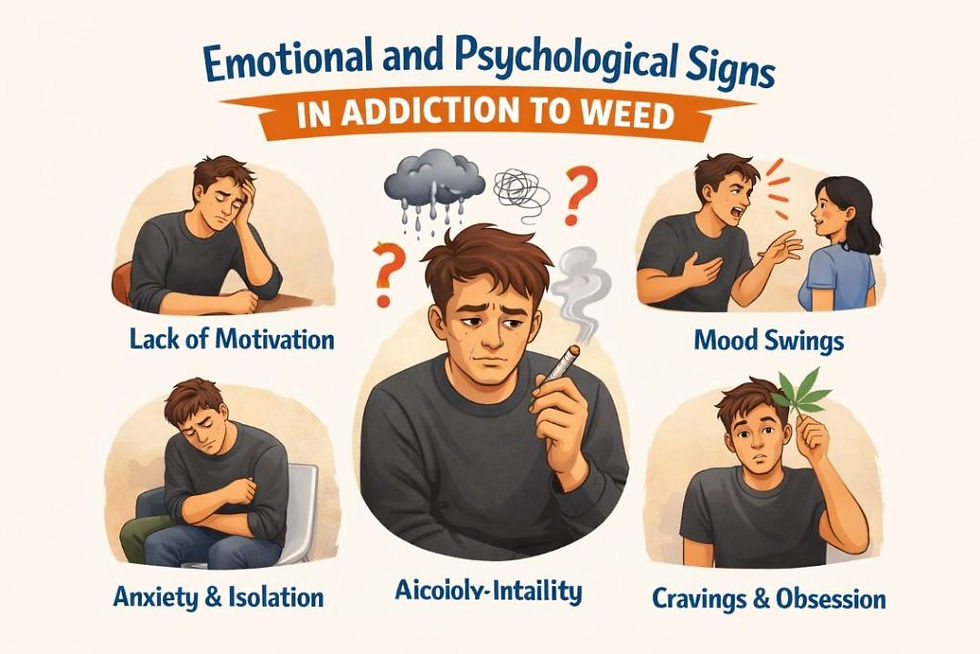PTSD: Recognizing the Signs, Seeking Help, and Finding Healing
- Felicia Parris

- Oct 10, 2024
- 3 min read
Post-traumatic stress disorder (PTSD) is a mental health condition that develops after experiencing or witnessing a traumatic event. It affects people from all walks of life, and recognizing the signs early can significantly improve outcomes. In this article, we’ll explore the signs, symptoms, and treatment options for PTSD.

What is PTSD?
PTSD can occur after exposure to events like natural disasters, accidents, combat, or personal assaults. While it's normal to feel scared or anxious after trauma, PTSD develops when these feelings persist and interfere with daily life. People with PTSD may feel constantly on edge, relive the traumatic event, or avoid situations that remind them of the experience.
Common Signs and Symptoms of PTSD
The symptoms of PTSD are typically grouped into four main categories:
1. Intrusive Memories
One of the hallmark signs of PTSD is recurring, unwanted memories of the traumatic event. These can include:
Flashbacks: Sudden, vivid memories that make you feel like you're reliving the trauma.
Nightmares: Disturbing dreams related to the event.
Severe emotional or physical distress: Strong reactions triggered by reminders of the trauma, such as specific sounds, places, or smells.
2. Avoidance Behaviors
Individuals with PTSD often go to great lengths to avoid anything that reminds them of the trauma. This can include:
Avoiding places, people, or activities associated with the event.
Suppressing thoughts and feelings related to the trauma to avoid distress.
3. Negative Changes in Mood and Thinking
PTSD can alter how a person views themselves and the world. Symptoms might include:
Negative beliefs about oneself or others: Guilt, shame, or believing they are permanently damaged.
Detachment: Difficulty maintaining close relationships, feeling emotionally numb, or being disinterested in activities once enjoyed.
Memory issues: Difficulty recalling key aspects of the trauma.
Pessimism: Persistent negative thoughts and hopelessness about the future.
4. Hyperarousal Symptoms
People with PTSD often feel constantly on high alert, known as hyperarousal. These symptoms include:
Irritability or anger: Frequently feeling irritable or experiencing sudden outbursts.
Difficulty sleeping: Insomnia or frequent waking during the night.
Concentration problems: Difficulty focusing on tasks or conversations.
Hypervigilance: Feeling "on edge" and constantly watching for potential dangers.
PTSD in Everyday Life
The impact of PTSD extends beyond mental and emotional health. It can affect all aspects of daily life, including work, school, and personal relationships. Those living with PTSD often feel isolated or misunderstood, which can worsen the condition.
PTSD can also lead to other mental health challenges, such as depression, anxiety, or substance abuse, as individuals may turn to unhealthy coping mechanisms.
Treatment Options for PTSD
The good news is that PTSD is treatable. Many therapies and treatments have proven effective in helping individuals manage and overcome symptoms.
1. Cognitive Behavioral Therapy (CBT)
CBT is one of the most effective forms of therapy for PTSD. It helps individuals understand and change how they think about the trauma and how those thoughts affect their feelings and behavior. A subset of CBT, known as Cognitive Processing Therapy (CPT), is specifically designed to treat PTSD by helping patients reframe their thoughts about the traumatic event.
2. Prolonged Exposure Therapy (PE)
Prolonged Exposure Therapy encourages individuals to confront memories, thoughts, and situations related to the trauma gradually. This repeated exposure helps desensitize the individual to the trauma, reducing its emotional impact over time.
3. Eye Movement Desensitization and Reprocessing (EMDR)
EMDR is another highly effective therapy for PTSD. This method involves guided eye movements that help the brain process and make sense of traumatic memories, leading to a reduction in their intensity.
4. Medication
Medications can help manage PTSD symptoms, especially when used alongside therapy. Commonly prescribed medications include antidepressants, which help reduce symptoms of depression and anxiety often linked with PTSD. Prazosin, a medication for high blood pressure, can also be prescribed to reduce nightmares and improve sleep quality.
5. Support Groups
For many, connecting with others who have had similar experiences can be incredibly therapeutic. Support groups offer a safe space to share experiences and receive encouragement from peers who understand the challenges of PTSD.
Seeking Help for PTSD
If you or someone you know is struggling with PTSD, it's essential to seek help. Early intervention can prevent symptoms from worsening and help individuals regain control over their lives.
At DeLand Treatment Solutions, we offer comprehensive PTSD treatment programs that include therapy, medication management, and holistic approaches tailored to each individual’s needs. Our compassionate team is dedicated to helping clients heal from trauma and move forward with hope.
Don’t let PTSD control your life. Contact DeLand Treatment Solutions and call us today at (386) 866-8689 to take the first step toward healing. Our experienced professionals are here to guide you on your recovery journey.



Comments